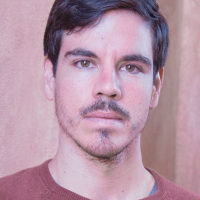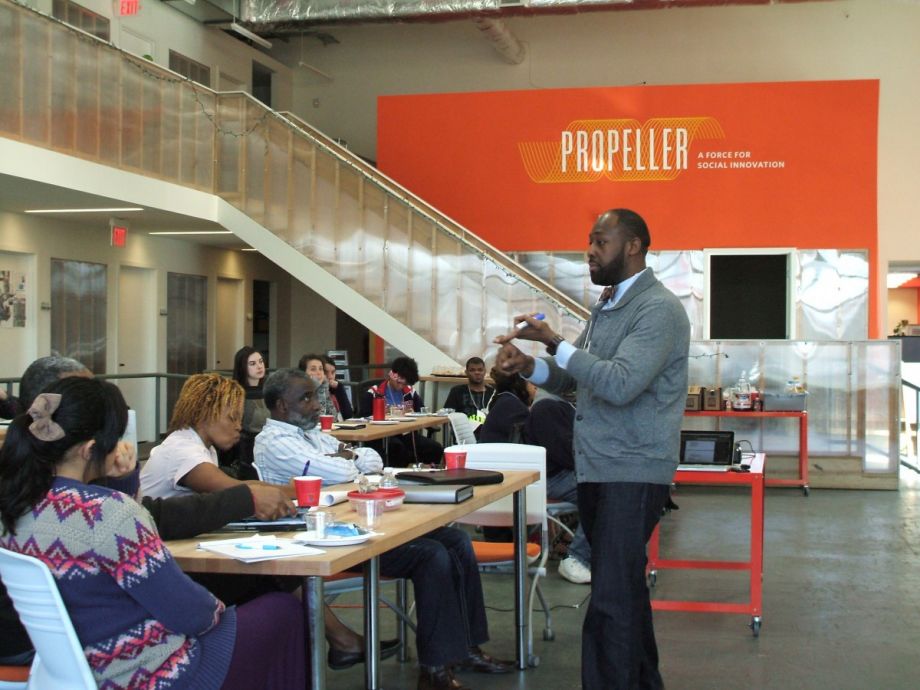If you’re looking for success stories that demonstrate just how impactful the Foundation for Louisiana and its partners have been throughout the New Orleans area, just talk to the man in charge. Flozell Daniels Jr., president and CEO, swears by the work his organization does because it gave one of his family members a second chance.
In 2015, his brother came to him after a string of bad luck, asking for a way out of the life that’d groomed him. “He’s seven years younger than me, but for a number of reasons we ended up taking very different paths,” Daniels says. “He ended up not finishing high school and having some legal challenges, and really reached out one day and said ‘I need some help.’”
Daniels referred his brother, who was 36 at the time, to one of the economic revitalization programs his foundation supported, the Network for Economic Opportunity. From there he connected with Strive, a four-week soft skills training program that started in Baltimore, and went on to get a certificate in welding. “He said ‘I really loved it. I feel like I’ve been changed,’” remembers Daniels. They not only helped him learn how to interview, write a resume and adapt to work life, but also helped him manage his pressing expenses, like rent and court costs.
Strive in New Orleans reports a 78 percent job retention rate for graduates up to six months after they leave the program. Nearly two years after Daniels’ brother ended his participation, he is still gainfully employed as a welder, owns a car and provides for his kids. “It’s part of the reason I’m a believer,” says Daniels.
Foundation for Louisiana works across the state, partnering with community organizations and nonprofits to build up political and economic agency among minorities and in impoverished neighborhoods. In 2015, it expanded its role in economic revitalization by linking up with the Rockefeller Foundation as part of the 100 Resilient Cities project in New Orleans. That program helped the city employ its first chief resilience officer, and develop a framework of ideals around environment, equity and city services to be achieved by 2050. Those were put to paper in the Resilient New Orleans policy agenda, which was released 10 years after Hurricane Katrina hit the city.
One part of the equity component: Reduce barriers to employment for the city’s minority communities — an urgent need placed in the spotlight by a 2013 study by Loyola University that found that 52 percent of the city’s working-age black men were unemployed in 2011. Daniels says they’re making good progress in that realm.
But when it comes to the goal of helping these communities become more financially prepared for not-so-easy-to-prepare-for moments? Not so much.
“We haven’t made the progress we hoped we would make,” says Daniels, of the idea to create emergency savings accounts for low- to moderate-income residents so that they could better maneuver financial or environmental crises. “The original plan was to work with the private sector to create these accounts, and the pilot program would work with some private sectors around the city. But we just haven’t had the bandwidth to get there.”
There’s also the fact that affordable housing and job creation are just more pressing issues. “While we were talking about ‘Let’s set up these savings accounts,’ we heard from the people themselves and some of the employers that, ‘Yeah, we have some more fundamental work to do,’” Daniels says.
In 2013 nearly 55 percent of New Orleans residents were renters, as compared to 36 percent nationally, according to a report by the Center for Community Progress. But the majority of renters in the city are living below the federal poverty line while rents have steadily increased by upward of 25 percent between 2012 and 2015. Meanwhile, HUD Housing Choice Vouchers — federal housing support for very low-income families — haven’t shifted in quantity during about the same time frame, leading the report’s author to conclude that fluctuations in the city’s housing market are “placing even greater pressure on the city’s housing stock and its low-income renters.”
The unemployment for working-age black men, meanwhile, has slightly dipped, down from 52 percent to 44 percent in 2015. But while economic progress has been buttressed for city residents on that end, through multipartner and multigovernment efforts like Strive, Daniels is hoping that the emergency savings accounts will come to fruition after they make more dents curbing some of the city’s more alarming issues.
“We started this work six years ago, and we still have a lot of work to do. But those numbers mean something,” says Daniel, referring to the unemployment drop. “Those are real people’s lives.”
The Equity Factor is made possible with the support of the Surdna Foundation.

Johnny Magdaleno is a journalist, writer and photographer. His writing and photographs have been published by The Guardian, Al Jazeera, NPR, Newsweek, VICE News, the Huffington Post, the Christian Science Monitor and others. He was the 2016-2017 equitable cities fellow at Next City.

















